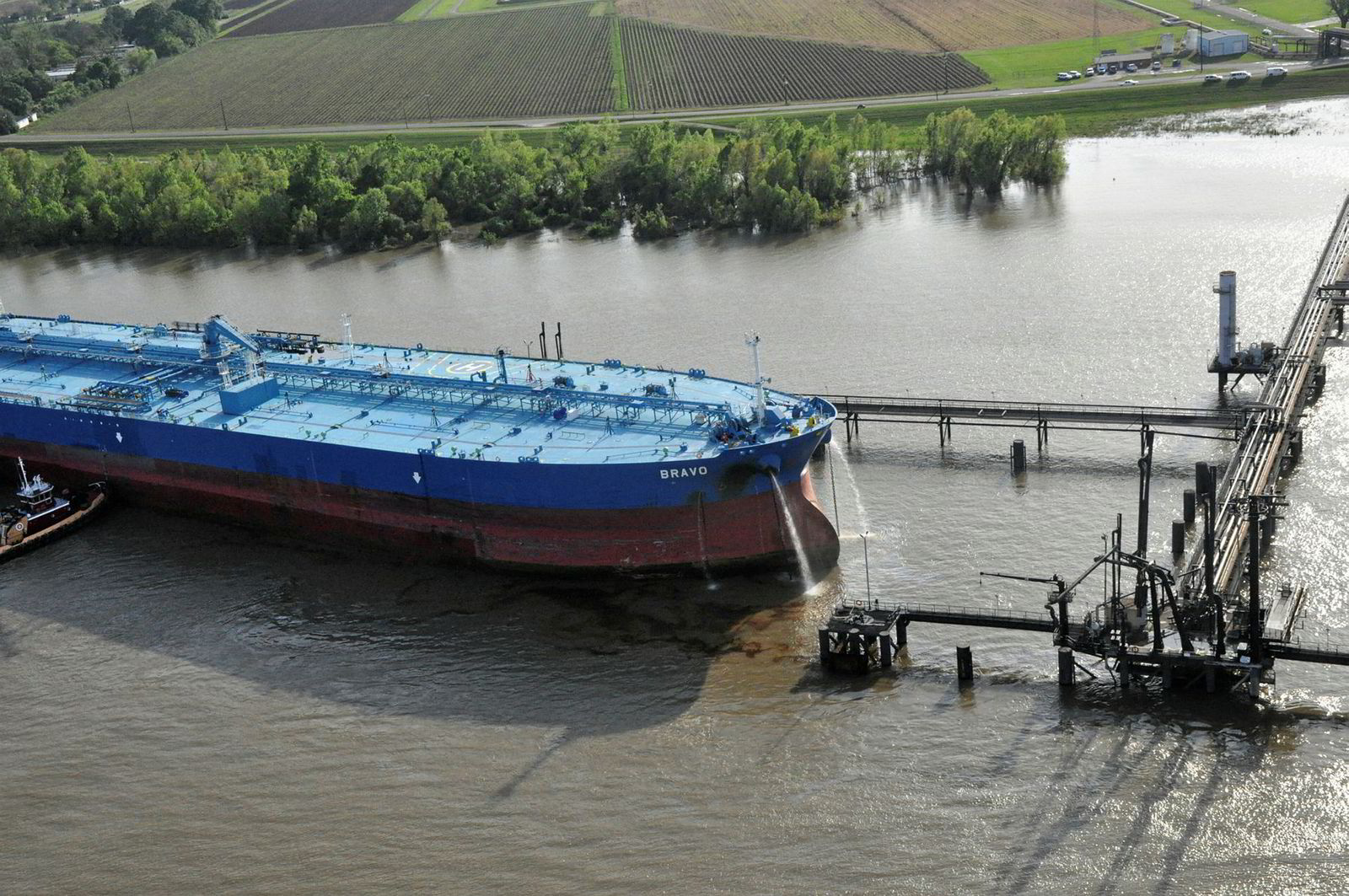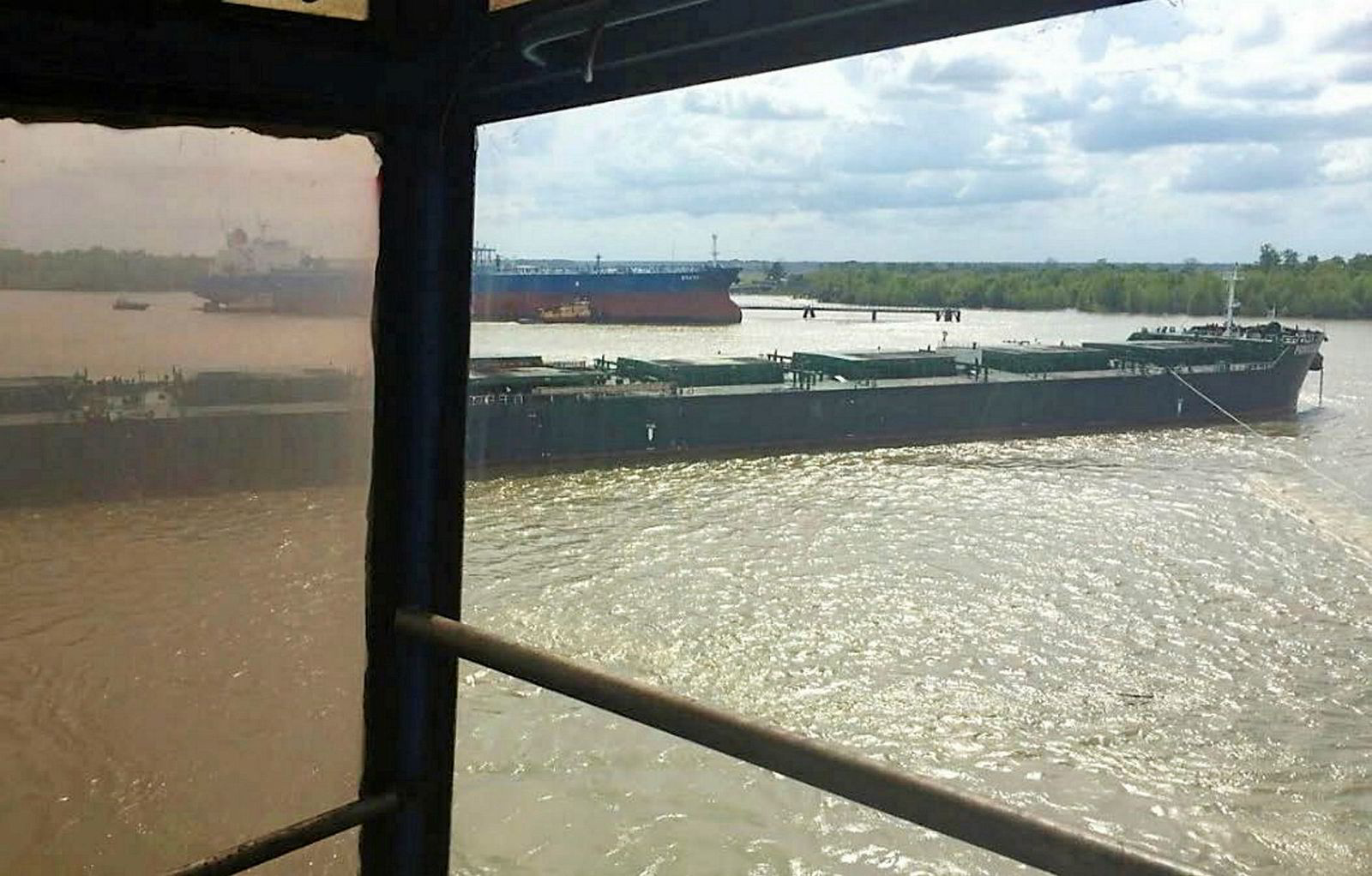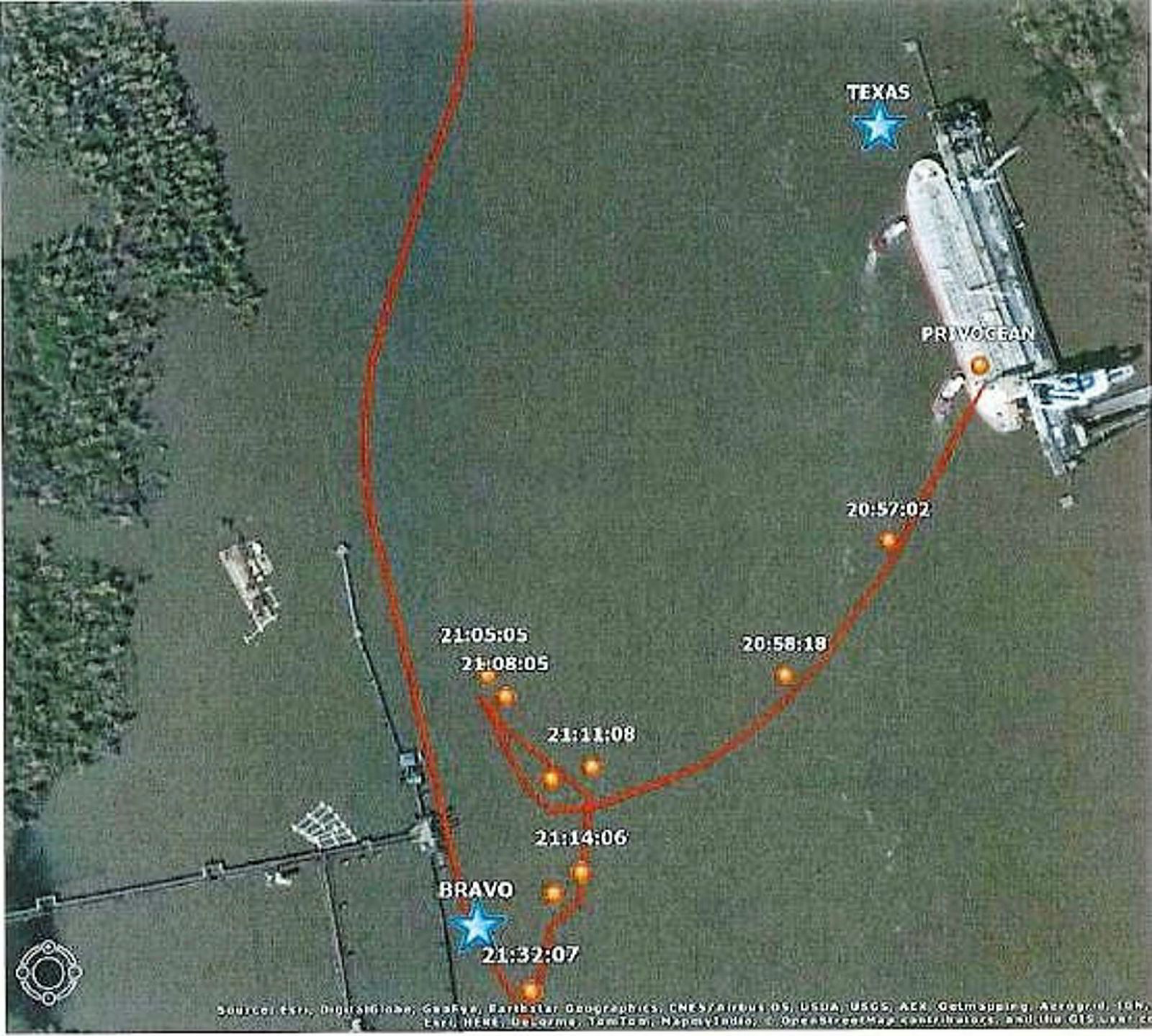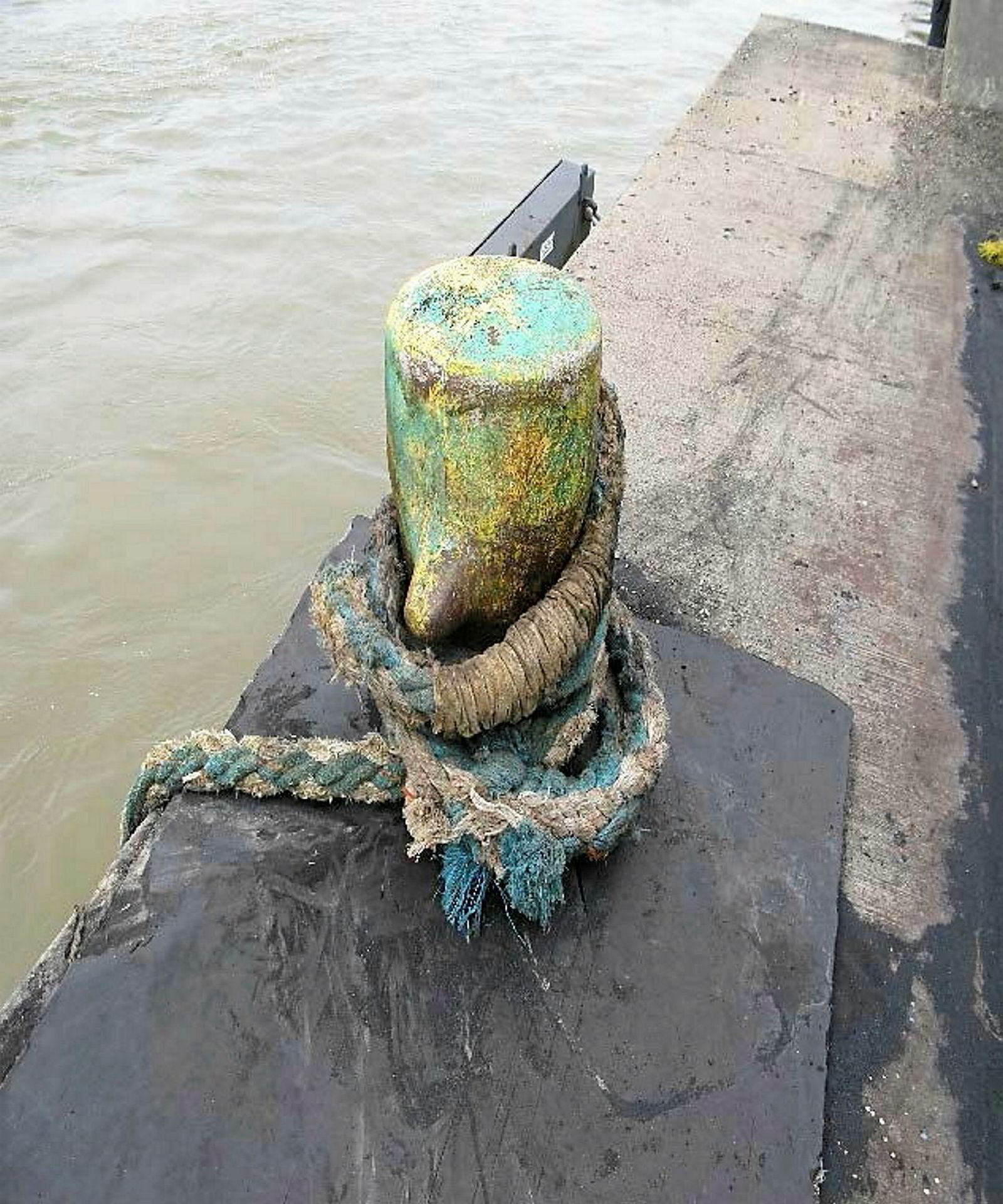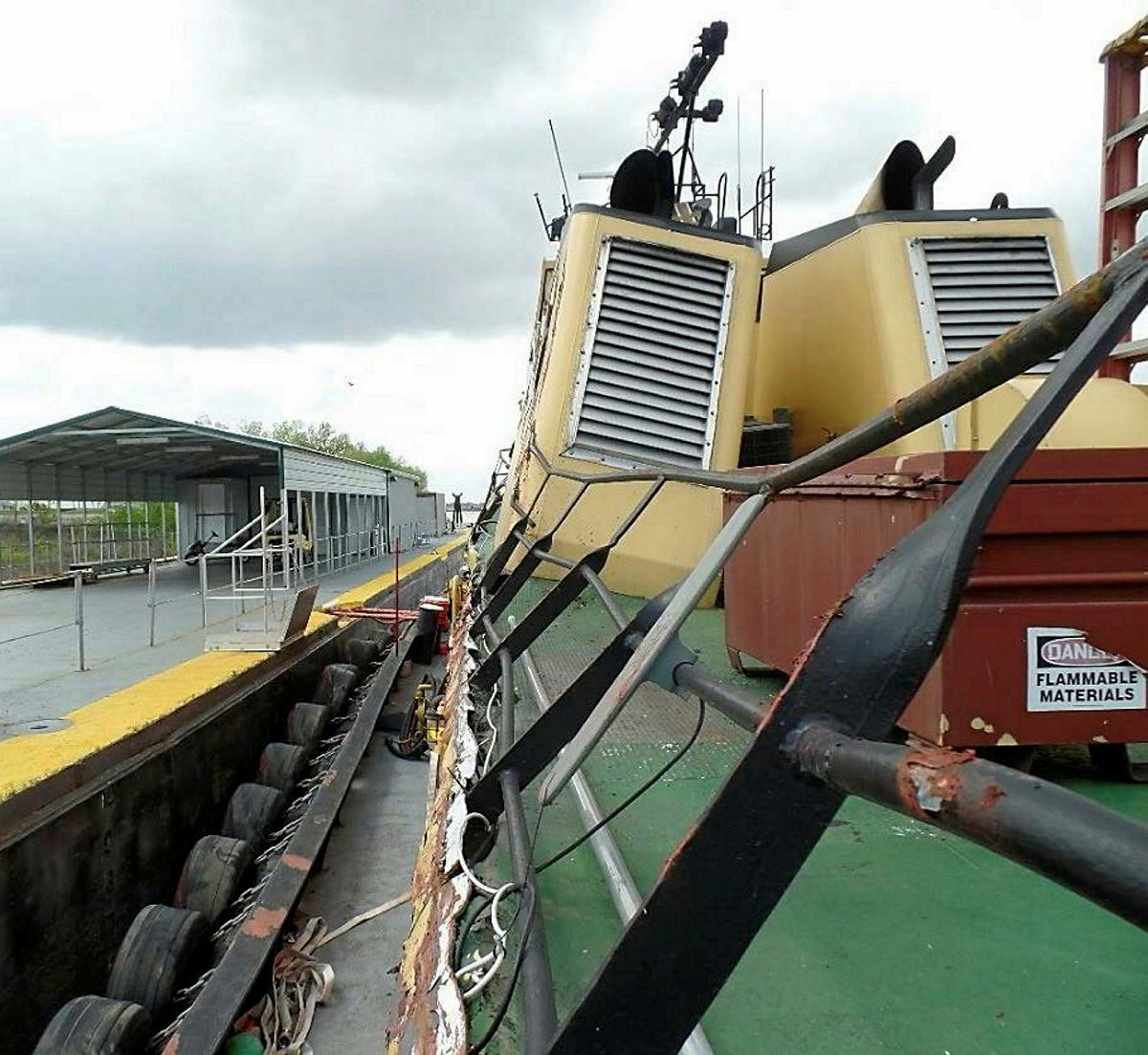Three years after a Bariba-controlled bulker broke free of its moorings and careened into two other vessels in a casualty that damaged a Mississippi River terminal, most of the legal disputes have been settled.
Lawyers say they have reached agreements on "16 and a half" of 17 claims.
But one question, whether a dockworker was partly to blame for additional damage at a terminal after the initial incident, has dogged the litigation over the casualty involving Bariba's 81,400-dwt Privocean (built 2013).
Efforts to reach a settlement between Greek shipowner Bariba and US refiner Ergon have failed to prevent a trial, which started this week over the chain-reaction incident.
In April 2015, the Malta-flag Privocean discharged a cargo of urea from China, and then moved on to the nearby Convent Marine Terminal to load coal under orders from charterer Cargill, the US commodities giant.
While moored, the ship broke free and drifted down river, where it hit a tug and the 116,014-dwt tanker Bravo (built 2011), which has since been renamed the Advantage Atom. The Bravo then slammed into parts of the Ergon dock.
The US' National Transportation Safety Board has since blamed the incident on inadequate mooring of the Privocean and insufficient "hold-in" tugs for the prevailing conditions.
After the incident in April 2015, several parties lodged claims and Bariba launched limitation-of-liability proceedings in a federal court in New Orleans in a dispute that was emblematic during a particularly high water period for the Mississippi.
The trial before US District Judge Jay Zainey was left primarily to focus on Ergon's $14.6m in claims for damage to its dock, business interruption and other costs, as well as the Privocean's argument that dockworker Kevin Labat contributed to the damage at the Ergon dock at its refinery in St James, Louisiana.
Although Ergon's insurers have reached a settlement agreement — that is the half-settled claim — the refiner continues to fight on, alleging that the blame for damage to its facilities should fall entirely with the Privocean.
The company’s lawyers at law firm Jones Walker have argued that the Privocean’s master sent a notice of protest to both Cargill and Bariba complaining of inadequate mooring and tugs amid strong currents and high waters.
"In the days leading up to the breakaway, including the day of, the Privocean sent and received hundreds of emails," Jones Walker partner Barrett Rice said in a pretrial brief. "Yet, the Privocean never received a single email from its management with further instructions on addressing what the master considered to be an unsafe situation."
In a rival pretrial brief filed last week, Bariba's lawyers at New Orleans law firm Phelps Dunbar said Ergon's claims should be reduced by $7.04m to account for Labat's actions.
They wrote that after the incident, Labat became concerned that the Bravo would drift and called in two nearby tugs to push the vessel to starboard.
His orders, they alleged, pushed the ship into dock infrastructure, toppling a mooring dolphin that was "utterly destroyed" and causing additional damage to the Bravo as well.
"At this point, Ergon’s dockman surely should have recognised he was destroying his own wharf," Phelps Dunbar lawyer Gary Hemphill wrote.
But Labat did not reverse his order and instead began taking photos of the unfolding situation. The tugs continued to push the tanker, even though the Bravo had dropped its anchor, causing more damage until a pilot arrived and ordered the tugs to halt, Bariba's lawyers alleged.
"The Ergon dockman’s actions and inactions were clearly negligent and exacerbated the damage to Ergon’s dock and to the Bravo," Hemphill wrote.
The lawyers claimed that nearly $5.18m in dock damage and $1.86m in damage to the Bravo were a result of Labat's orders to the tugs and his failure to revoke them as the situation worsened.
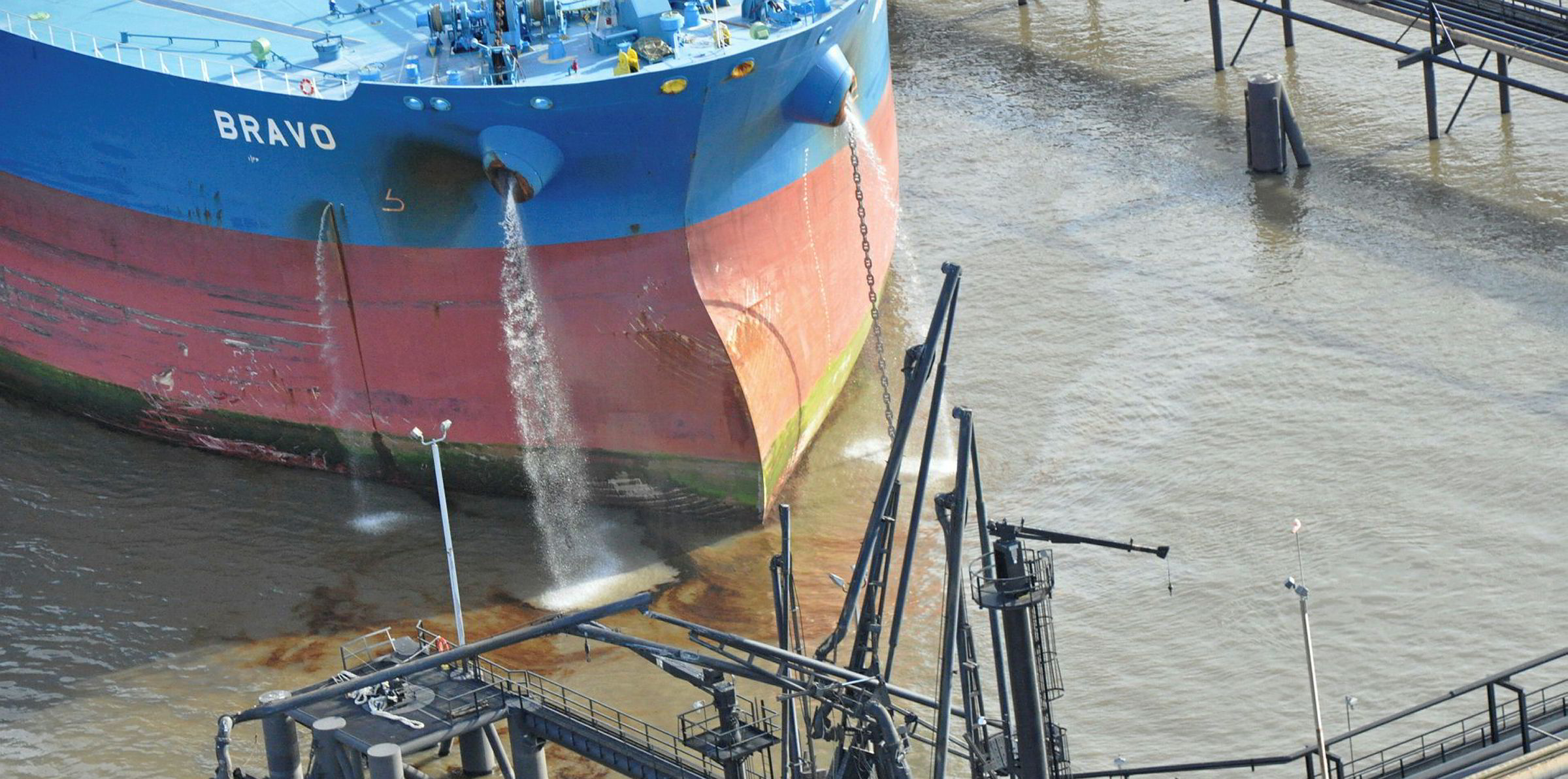
Bariba's lawyers alleged that Ergon failed to properly train its dockside staff, and that it had no response plans or drills for a scenario involving a ship breakaway.
But lawyers for Ergon denied it was the tugs that pressed the Bariba ship into the terminal infrastructure.
They argued that as the Privocean remained in contact with the Bravo, it continued to put pressure on the tanker and the Ergon dock.
Then, as the Privocean manoeuvred away, its stern pressed against the Bravo's bow, causing it to crash through the dock.
"Any suggestion that the Privocean did not push the Bravo through Ergon’s dock will be belied by the complete lack of evidence supporting this contention at trial," Rice wrote.
